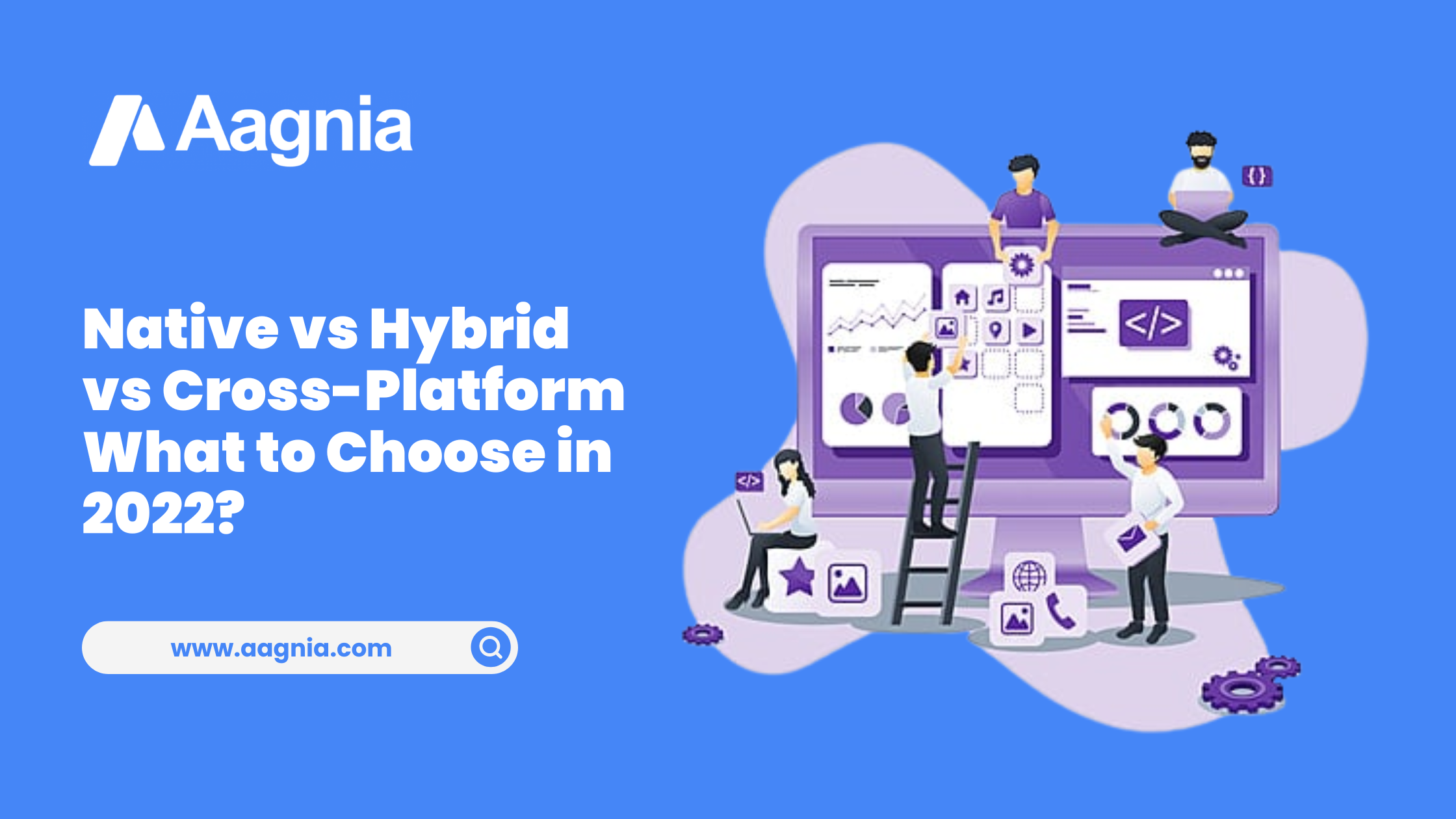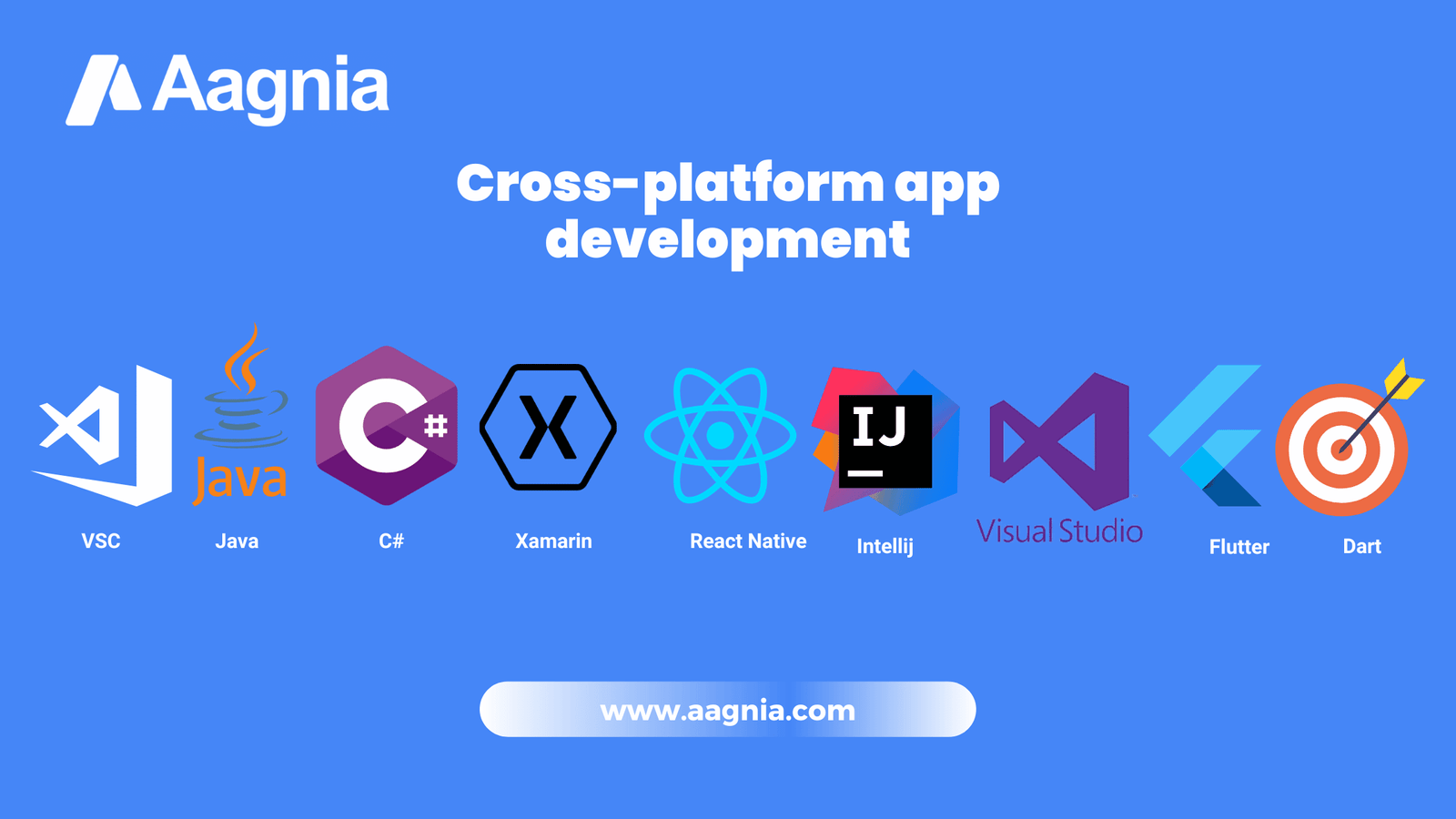
Native vs Hybrid vs Cross Platform – What to Choose in 2022?
There are numerous ways to provide users with a distinctive mobile experience. There are several approaches for developing mobile apps. Because the goals and objectives of each project alter, the methodology must always adapt. We have technologies to help us do all of them. But the real question is: which one should you choose and when? Obviously, you already know the answer: it depends.
The native app development method is the most popular. It provides you with an exceptional user experience. However, the time to market is longer than with the other two approaches. It also provides a large amount of development space. The pilot app project benefits greatly from hybrid app development because less emphasis is placed on UX and performance as it swiftly enters the market. The cross-platform is a wonderful means of choosing between the other two options. The UX and performance are comparable to the Native method, but you will save money and gain time efficiency.
This blog post will go over the differences between native, hybrid, and cross-platform mobile app development. What are their best characteristics, and when should you use them? Let’s investigate!
What is Native App Development?
The term “native app development” refers to the creation of a mobile app that is designed specifically for a single platform. The application was created using platform-specific programming languages and tools. For example, you can create native Android apps using Java or Kotlin, and iOS apps using Swift or Objective-C.
Native app development :
Most product owners dream of becoming native, but not everyone can afford it. It entails the development of a single-platform mobile app. Engineers use a programming language specific to the operating system in this scenario. For Android, it can be Java or, more recently, Kotlin, and for iOS, Swift/Objective-C. Users choose native apps because of their excellent performance and platform-specific user experience. This technique, however, deters entrepreneurs since it is costly. The primary difference between native and hybrid app development is expense.
Engineers have full access to the device’s feature set for development. This permits them to take advantage of advanced features (memory management, complex networking, etc.). However, running the programme on two platforms is the most difficult task. You’ll need to create distinct codebases for this. Some native extensions, however, allow code sharing. For example, utilising Java Native Interface, you can exchange C++ libraries between iOS and Android apps. Despite this, product owners are desperate to nearly double development costs.

Why Native apps are better?
Because native apps are created specifically for a device, they have complete access to all of the device’s functionality, including the camera, contact list, GPS, and Bluetooth. Native apps are available for download through their respective app stores: the Apple App Store for iOS and Google Play for Android.
Hybrid App Development:
For the mobile experience, native is not required. Furthermore, your project may require another priority vector, such as a short time to market. To this end, a hybrid app isn’t merely a less expensive option. It takes less time to develop and allows you to share code. Sluggish performance and a poor user experience are the flip side of the coin. From a visual aspect, it is theoretically conceivable to produce a wonderful UX and navigation patterns. However, putting this into reality is difficult.
Hybrid apps combine web and mobile elements. As a result, you construct a codebase utilising common web technologies (HTML, CSS, JavaScript etc.,). Then you wrap it in a Web View, which is a native container. Web View renders the content as a traditional website. It is in charge of the user experience and hardware access (camera, GPS, etc.). However, in terms of hybrid application development vs. native application development, the latter is relatively limited. A user can eventually download a separate app from the app store.

Cross-platform app development:
It’s crucial to distinguish between hybrid and cross-platform programmes. Perhaps the only thing they have in common is the ability to share code. As a result, they both enable you to accelerate the pipeline. The rest reveals numerous distinctions between cross-platform and hybrid app development.
A native rendering engine is used in the cross-platform development strategy. The JS codebase uses so-called bridges to link to native components. This gives a near-native user experience. Platform hooks are not present in cross-platform apps. They provide seamless functionality, simple deployment, and low-cost manufacturing. However, don’t expect a stellar performance. Customization is also a problem due to the framework’s limitations.

Do you require Custom App Development?
Looking for experienced App Developers to create a web app from the ground up, or do you want us to get started on an existing project? Get your no-obligation expert consultation today!

Join our news Letter
- Revolutionizing Parking Management A Real-Time Example
- The Importance of Regular Application Maintenance
- Logistics Software Solutions and Software Development
- Software Development Services for SMEs
- How Does IoT Aid Businesses in a Variety of Industries
- But what exactly is IoT – What does it mean for manufacturers – How can you use IoT to improve your business
- How to outsource custom software development Services
- 5 Reasons Why You Need To Outsource Software Development
- Why You Need A Cloud Strategy
- The Cloud Is Changing Everything, Here’s How To Make It Work For Your Business


